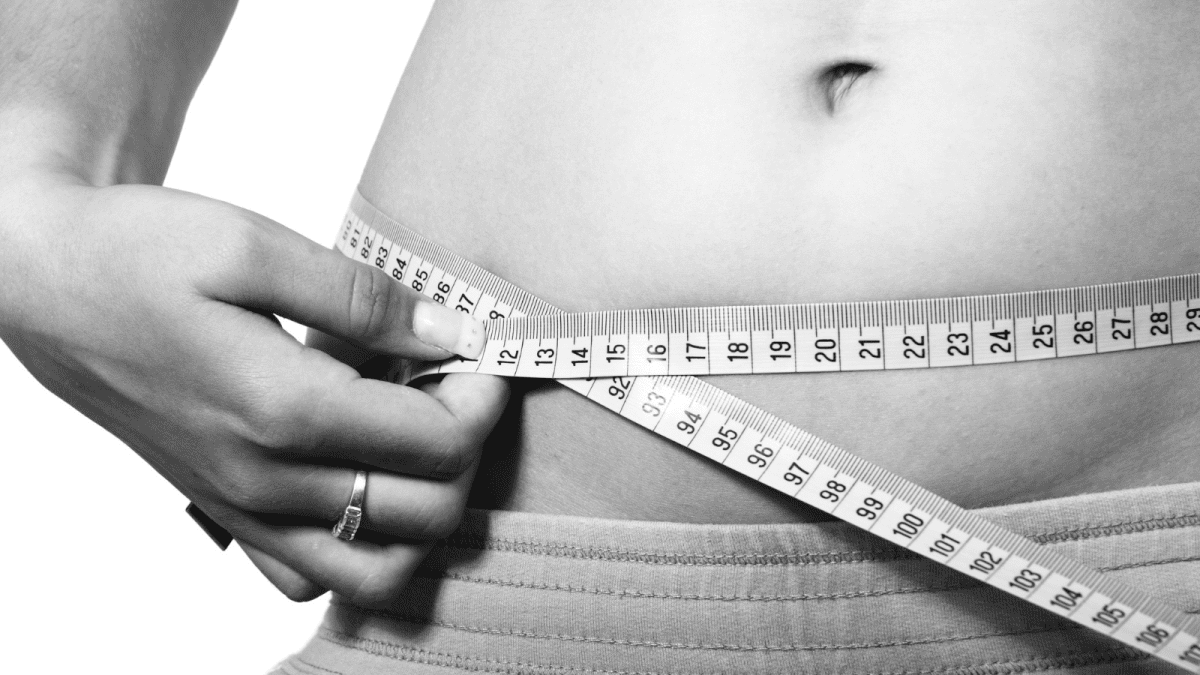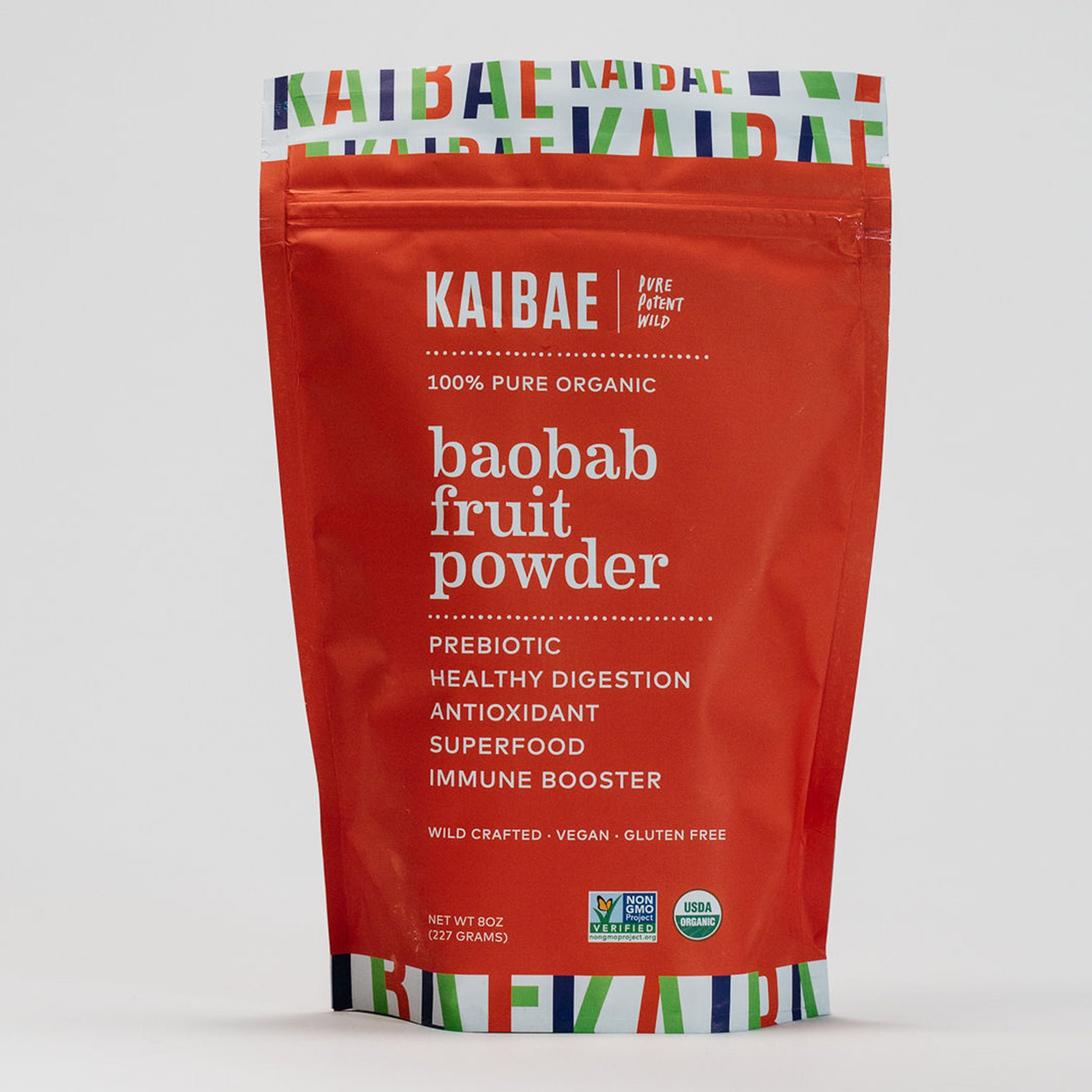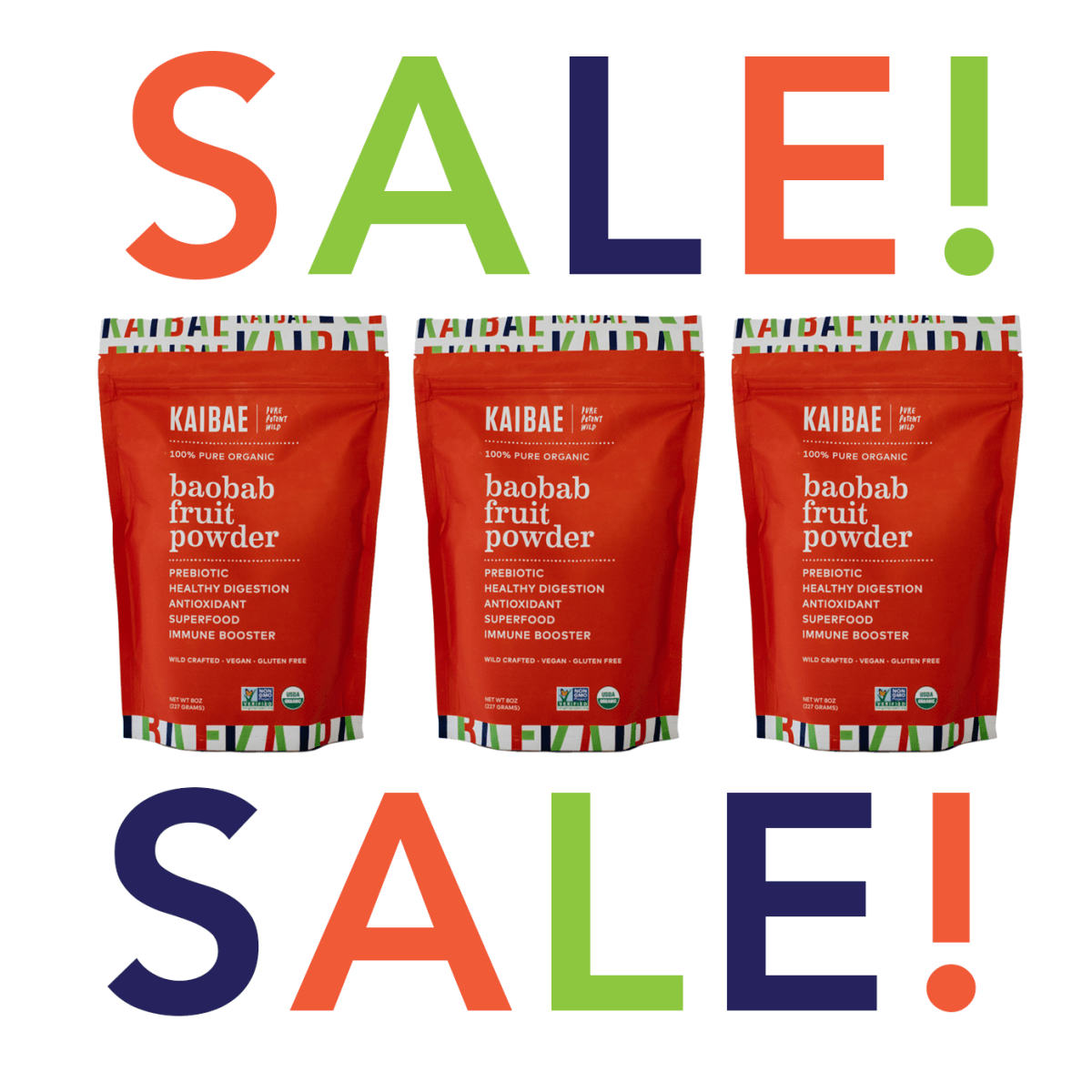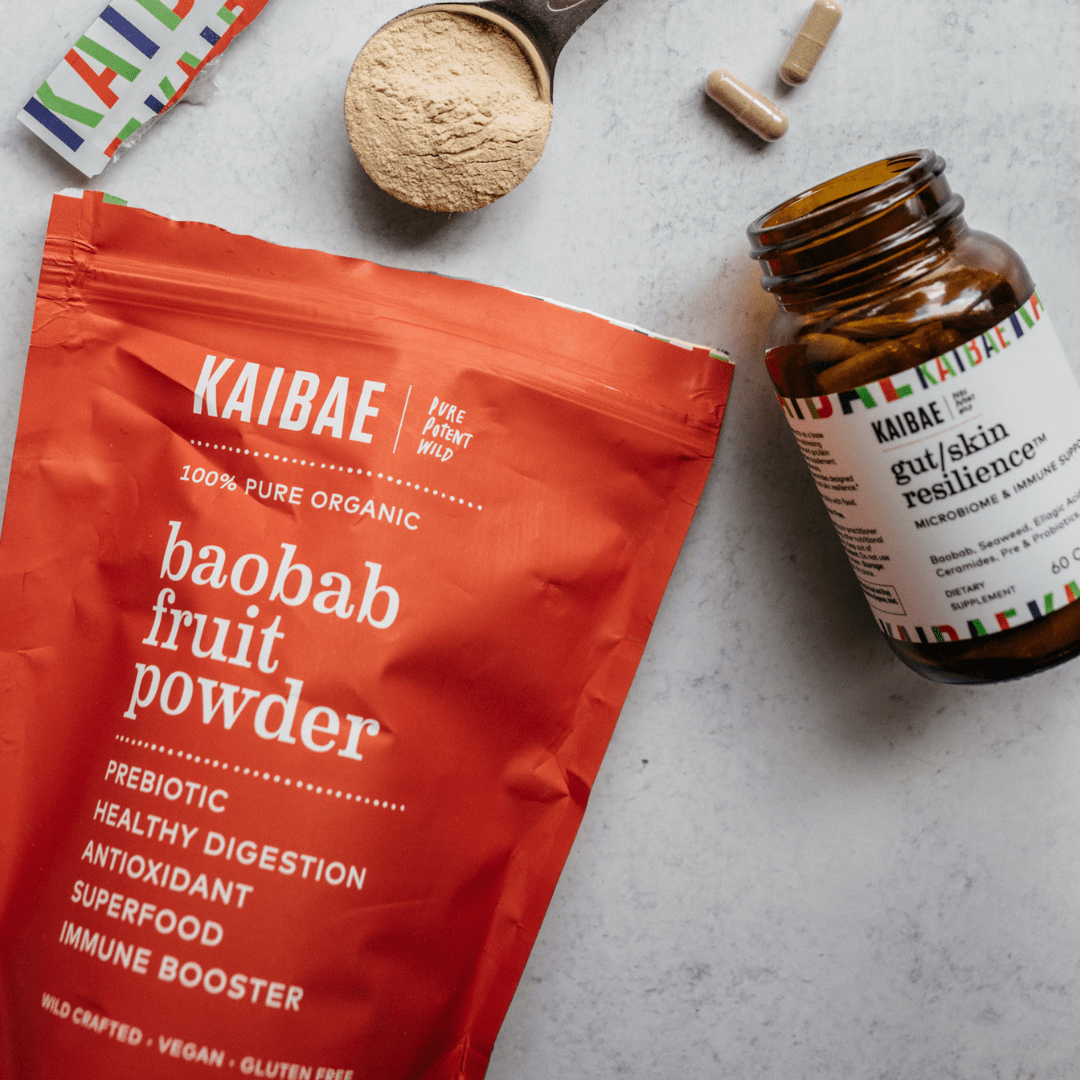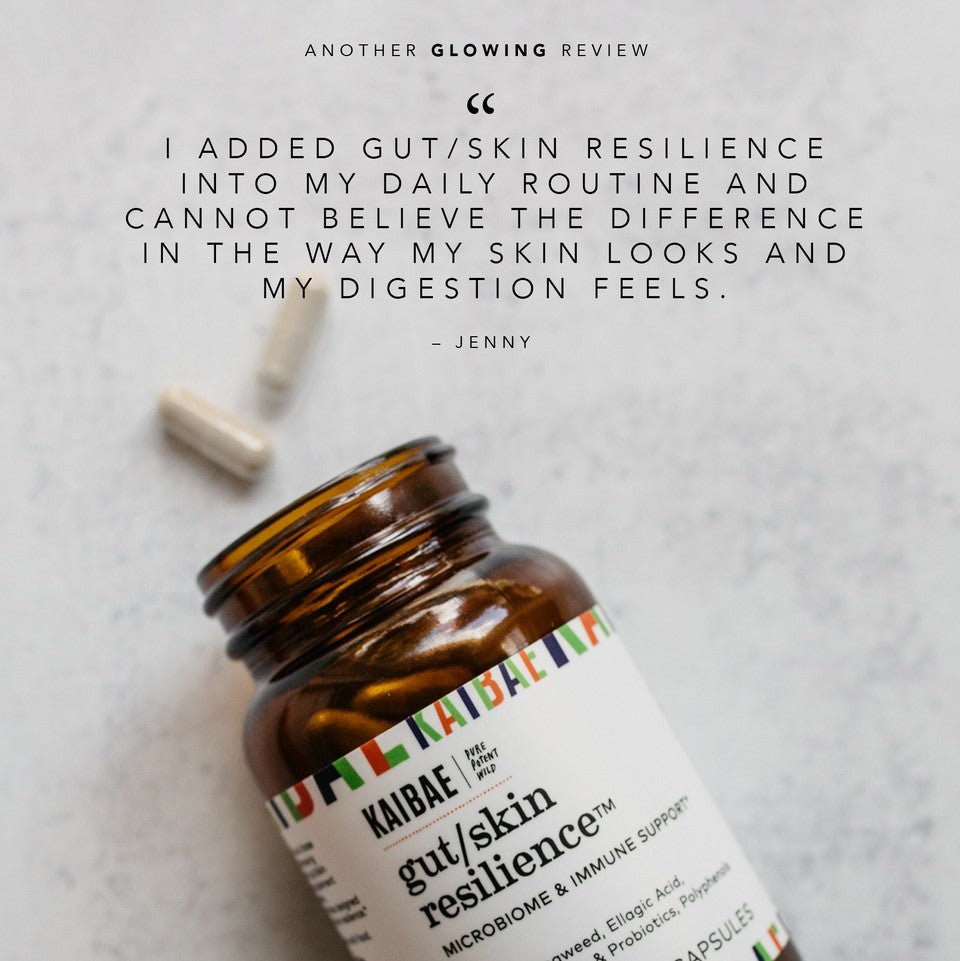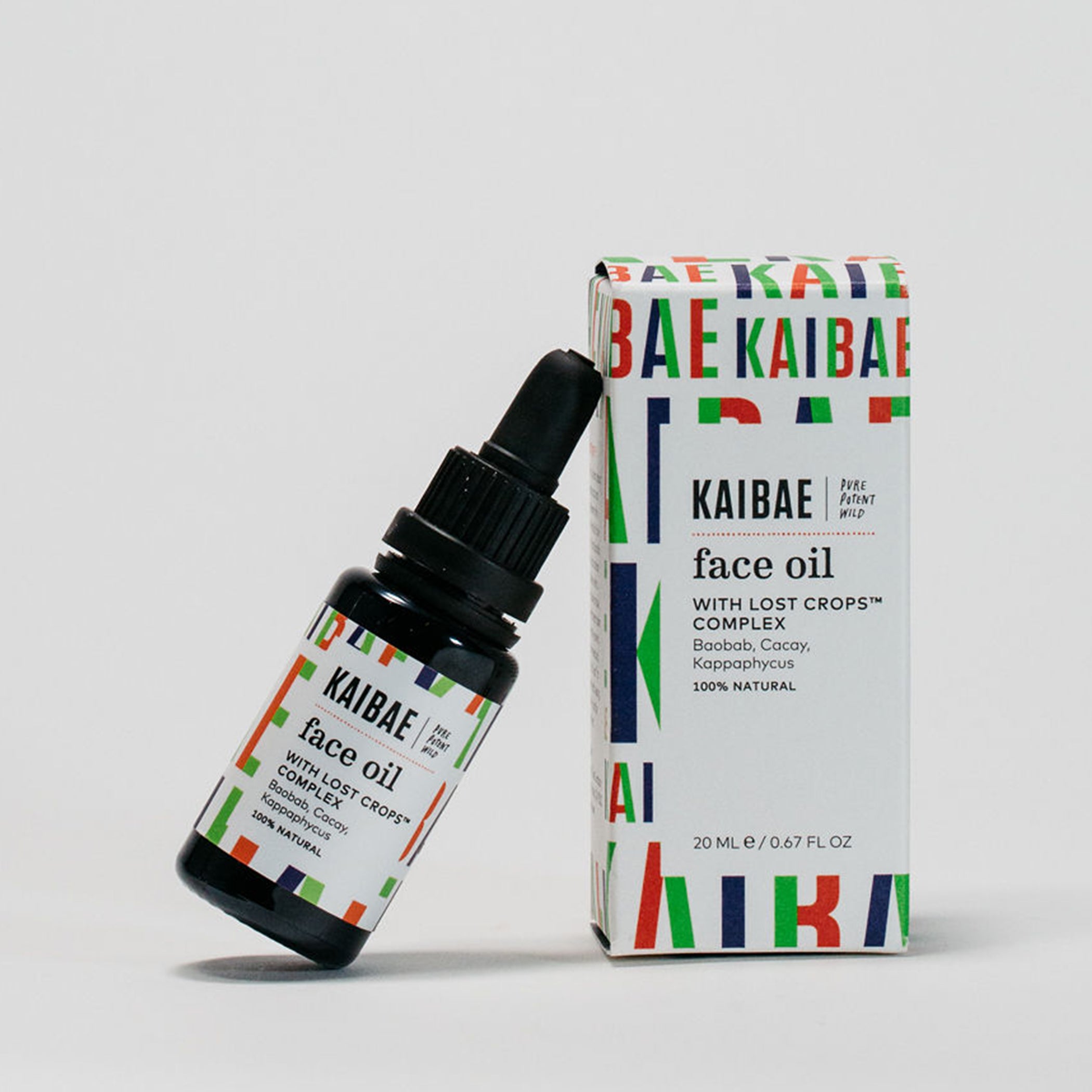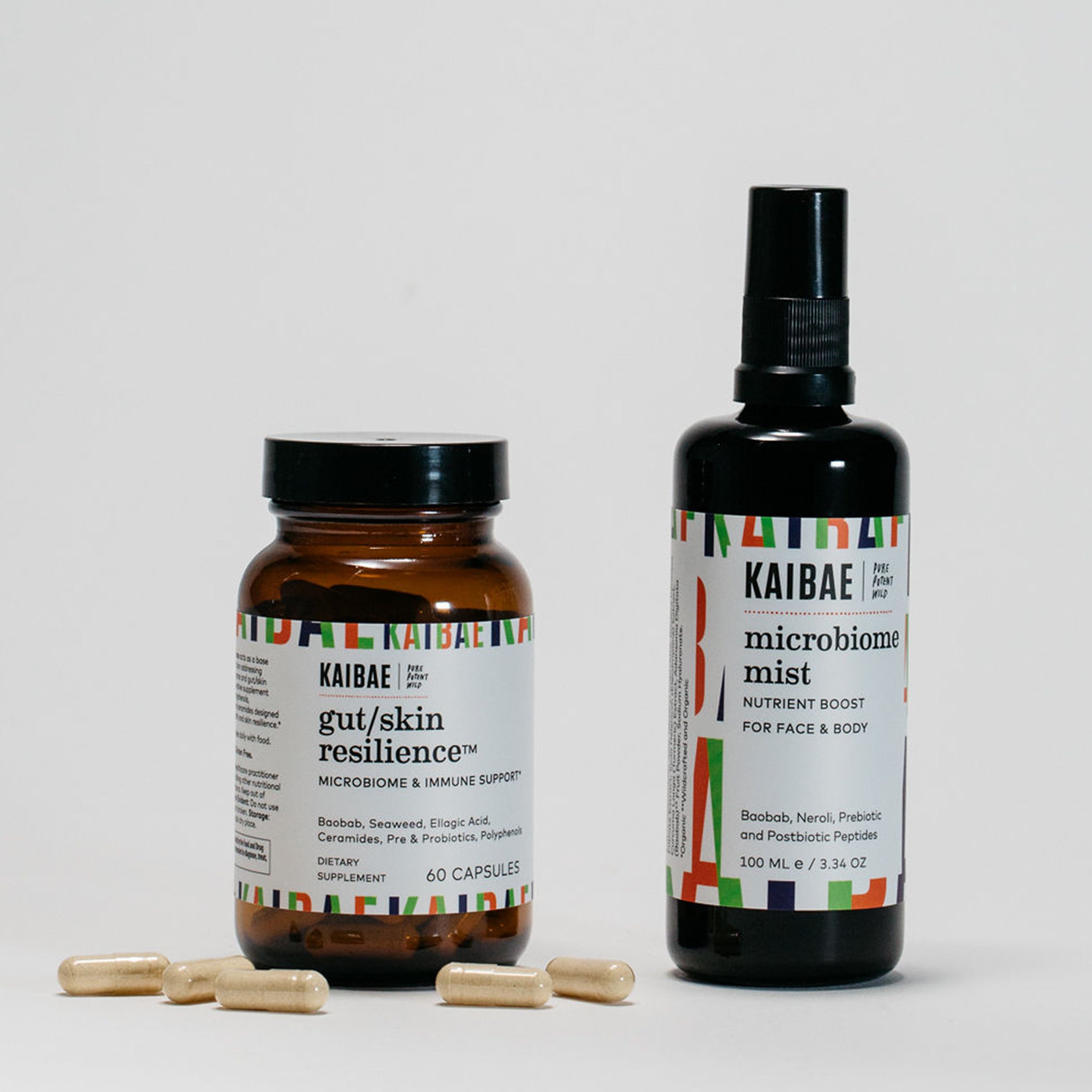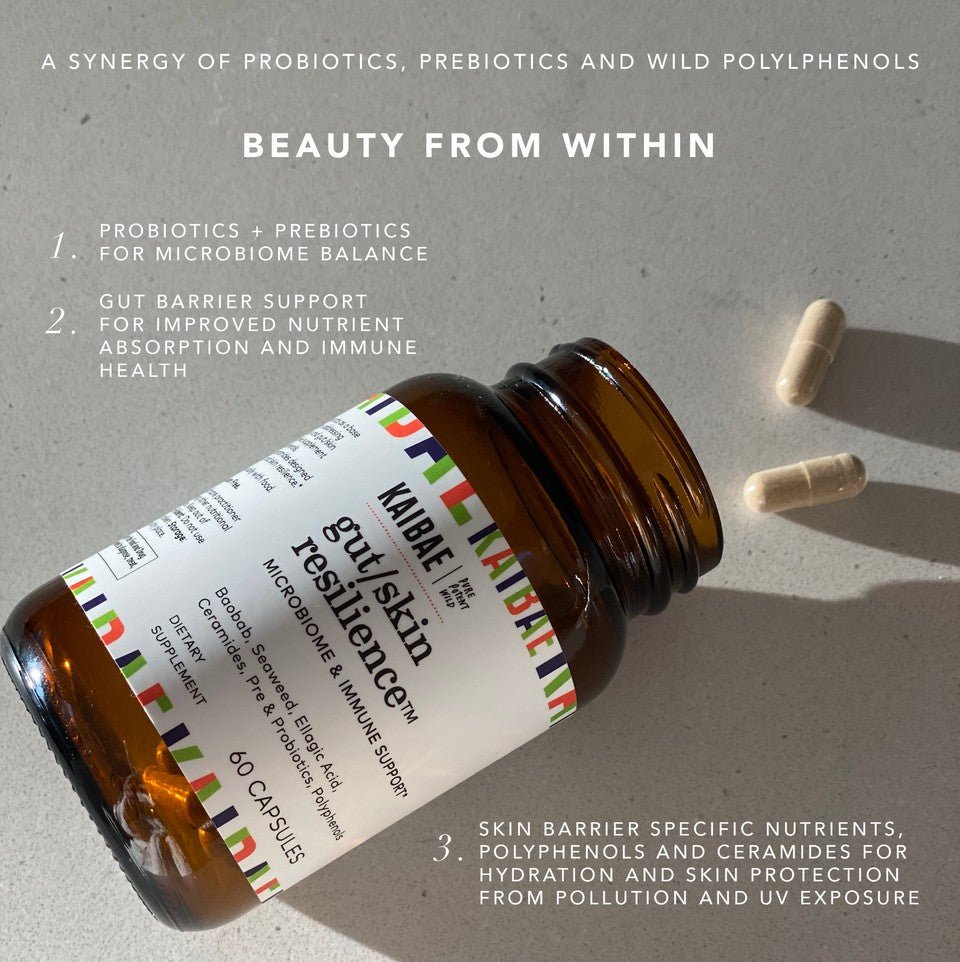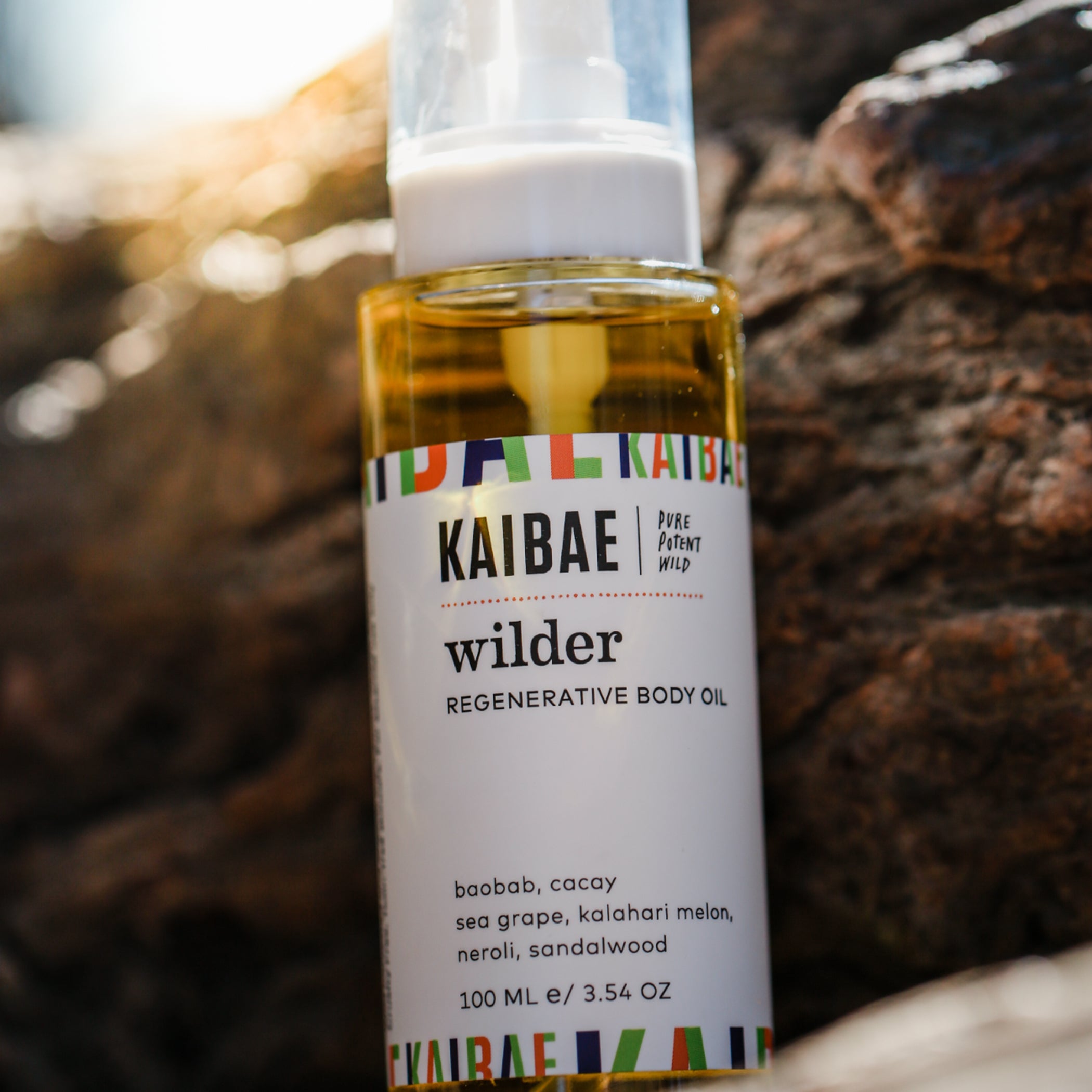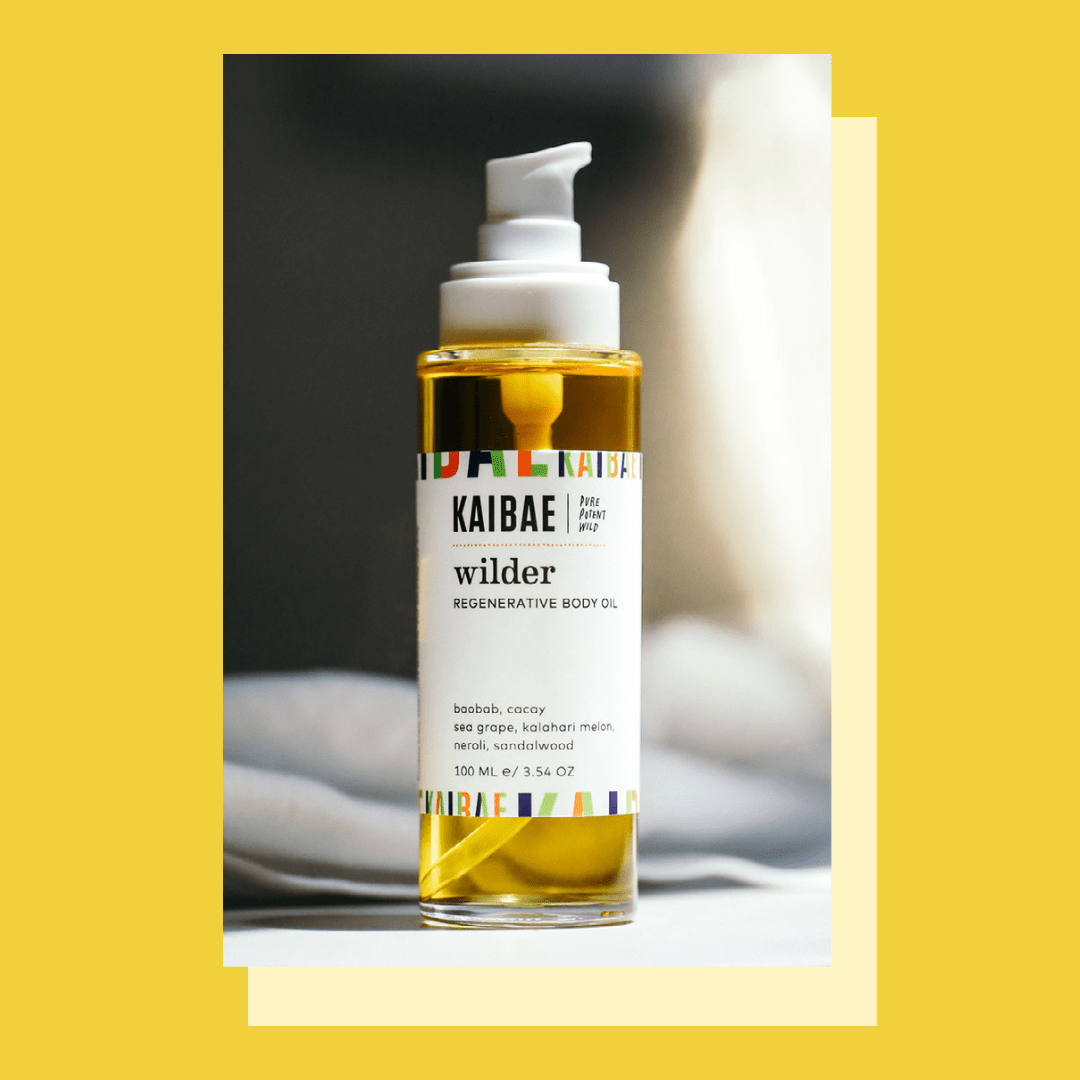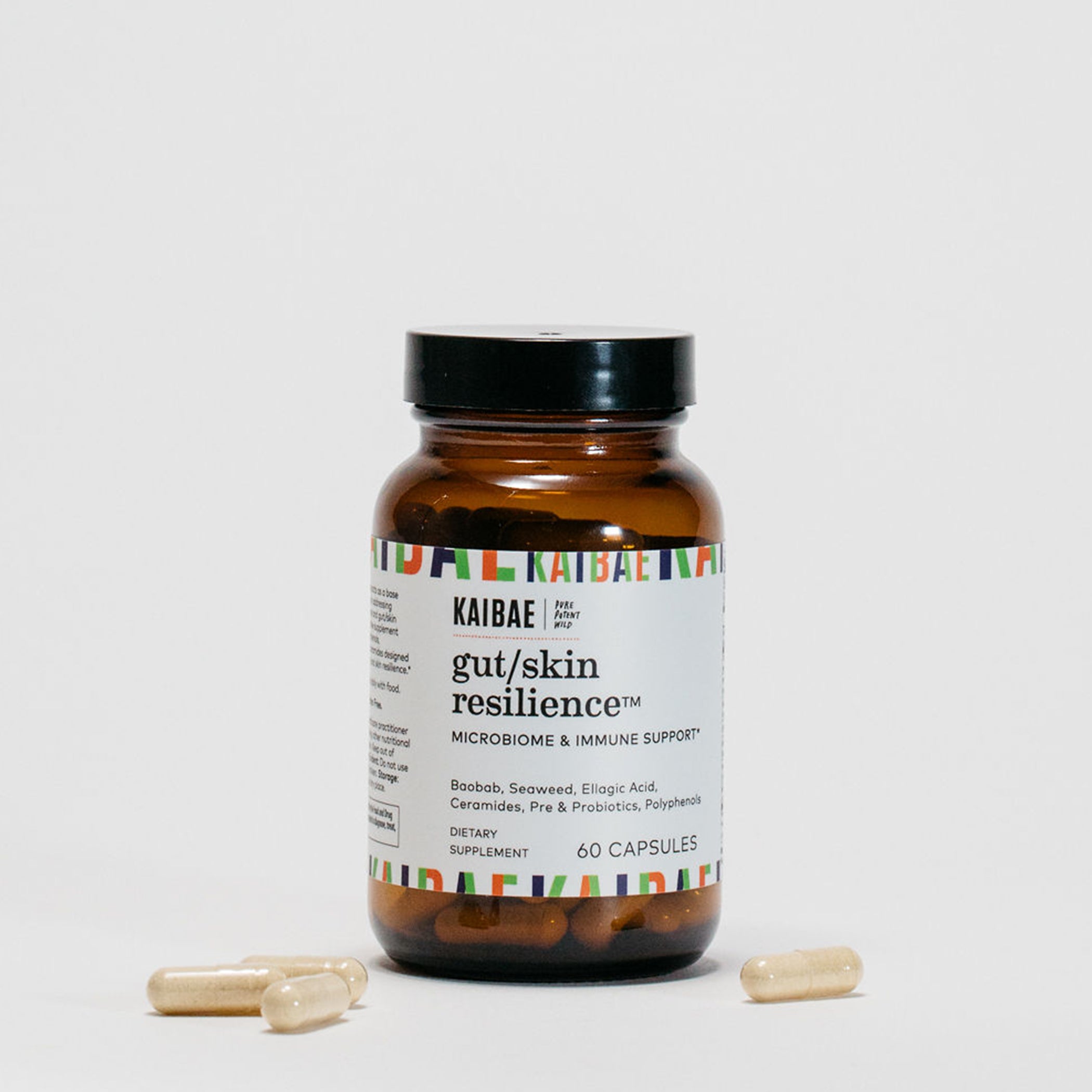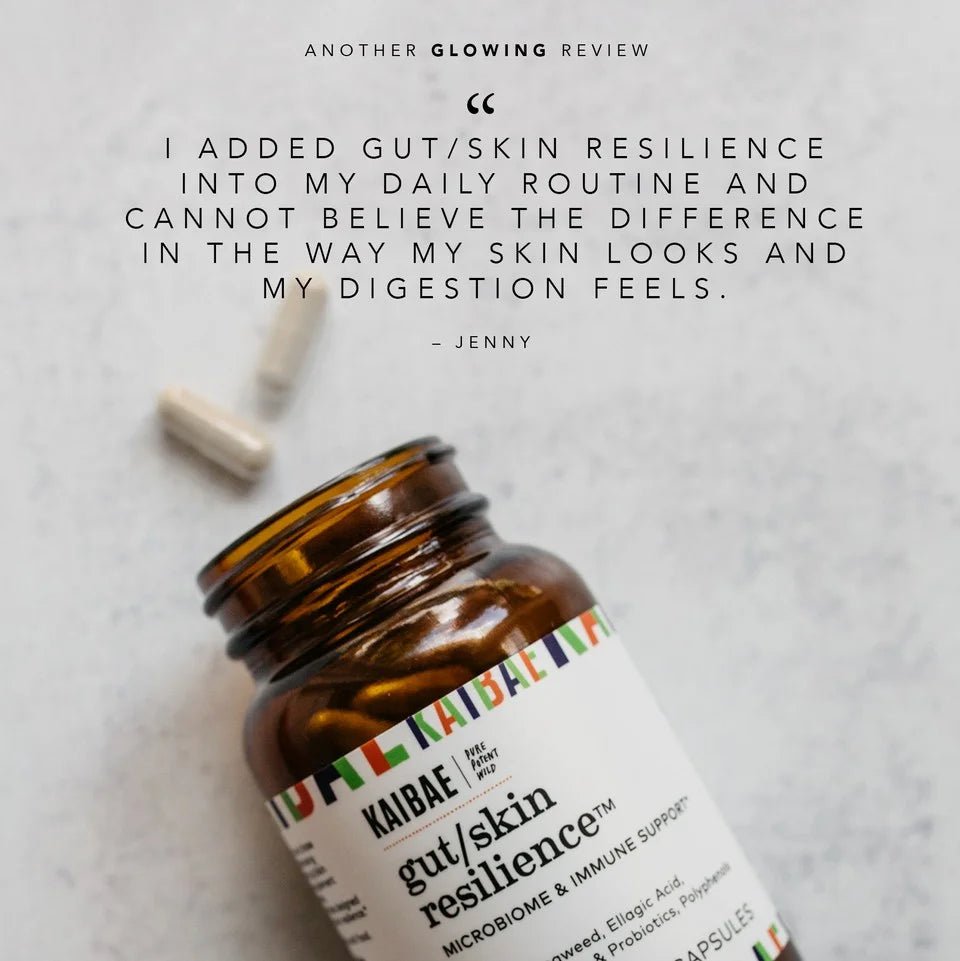Stress and Your Skin Health from Acne to Wrinkles
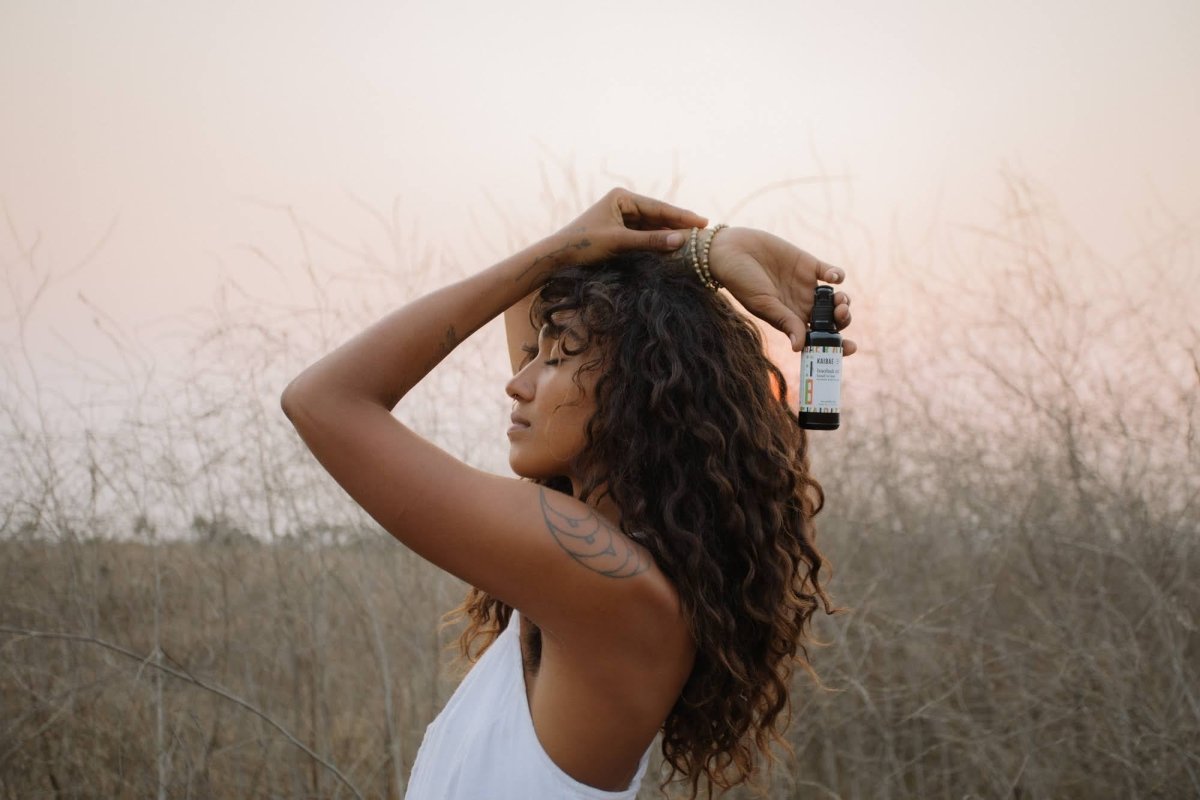
Stress and your Skin
When talking about stress we often talk about the mental and emotional experience that stress evokes in us. Butt recent studies shed light on how stress profoundly impacts all aspects of our health, including the skin. The gut and the brain significantly influence skin health and by understanding how this gut-brain-skin axis works, we can be more successful in reducing the impact of stress on our skin health.[1]
How Does Stress Affect Your Skin?
The skin is the body's largest organ, and a sensitive barrier moderates our external and internal environment. Psychological stress, dietary imbalances, and the damaging effects from pollution, UV, and blue light radiation all contribute to a systemic increase of the stress hormone cortisol. The compounding effect of stress accelerates skin aging, aggravating conditions such as acne, eczema, psoriasis, cold sores, and hair loss. [2,3]
Chronic Stress and Aging Skin
Chronic stress suppresses immunity and increases susceptibility to infection and inflammation throughout the body and the skin. Oxidative stress damages collagen, the protein that is the glue for all the cells in our body. Collagen is like scaffolding in your skin —the loss of collagen integrity causes fine lines and wrinkles. In addition, cortisol levels that are constantly elevated also inhibit the skin’s production of hyaluronic acid and healthy lipids essential to preserving plump, healthy-looking skin [4.]

What is the Gut-Brain-Skin Axis?
The gut-brain-skin connection is finally getting the scientific attention it deserves. The link between the gut microbiome and the skin has become an essential topic in dermatology and gastroenterology. Studies into the gut microbiome and its relationship to the skin show that probiotic supplementation reduces skin inflammation and may improve hair growth. The probiotics found in KAIBAE’s gut /skin resilience boost the body’s production of Lactobacillus and Bifidobacteria. Research indicates that these probiotics also help alleviate symptoms of depression, anxiety, and stress. [5.6]
How Exactly is the Gut Involved?
The gut microbiome and the gut barrier are essential to absorb nutrients from our diet. The integrity of the gut lining serves as a protective layer separating what you eat from the rest of your body. When stressed, the gut barrier becomes more “leaky,” allowing toxic metabolites to enter the bloodstream, increasing inflammation throughout the body.[7] In our skin, this is reflected by texture, tone, and coloration changes. Gut/Skin resilience by KAIBAE is a dietary supplement specifically designed to target gut and skin barrier health, protecting the skin from environmental stressors that damage skin and lead to dry skin, sagging skin, and pigmentation.
Add Prebiotic Fiber to your Diet
A high-fiber diet helps digestion, weight management, and lower cholesterol. There is an insoluble part that promotes digestive regularity, and there is a soluble part that is prebiotic. Prebiotic fiber stimulates the growth of healthy bacteria in your gut.[8] Fruits and vegetables contain both insoluble and soluble fiber in various amounts. Dietary sources of soluble fiber include oats, beans, lentils, and fruits. Baobab fruit powder is rich in prebiotic fiber, and in addition to high fiber, it contains the added benefits of an outstanding amount of polyphenols, vitamins, and minerals. Taking 1-2 tablespoons of KAIBAE baobab fruit powder daily in water, smoothie or foods improves satiety, helps with sugar handling, and promotes probiotic balance. Adding prebiotic fiber to the diet also improves resilience and acts as an adaptogen, improving how we respond to stress and benefiting our skin.

Avoid Sugar and Processed Foods
The Western diet broadly includes processed foods full of sugar, artificial sweeteners, and preservatives..9 All these additives disrupt probiotic balance and increase our susceptibility to digestive problems and metabolic disease. Additionally, we are learning that these processed foods are often low in fiber, damaging the gut lining and increasing “leakiness” across the gut barrier. Natural sugar alternatives, including stevia and monk fruit, do not adversely affect gut microbiome diversity.
Enjoy Foods Rich In Polyphenols
Polyphenols are plant-based chemicals that offer various health benefits, including reductions in blood pressure, cholesterol levels, and oxidative stress. 10 Polyphenols improve our resilience by reducing gut and skin inflammation. Good sources of polyphenols include chocolate, wine, green tea, onions, blueberries, broccoli, pomegranate, and Baobab. Studies into polyphenol-rich foods have shown that Baobab fruit powder derived from the Ancient African Tree of Life is one of the most significant sources of these powerful protective polyphenols. Gut/skin resilience combines Baobab, Ellagic acid from pomegranate, and citrus bioflavonoids for maximum anti-inflammatory effect. 11
Probiotics Are Key
Probiotics are beneficial bacteria that help keep the gut healthy and functioning correctly.12 While we consider taking probiotics after taking antibiotics, taking probiotics daily supports gut health and beyond—improving overall immunity and skin health. Probiotics are available as dietary supplements; their efficacy is increased by eating a diverse diet. The Mediterranean diet is rich in fruits and vegetables, fish, nuts, seeds and grains, and small amounts of meat, providing more fiber and is most beneficial for a healthy gut microbiome.13,14 The skin also includes a microbiome with its diverse organisms long neglected in skin care. Microbiome mist by KAIBAE contains probiotic balancing ingredients which help acne15 and skin inflammation 14, shielding the skin from blue light, UV radiation, and environmental stress.

Stress Management
It is clear that continued stress adversely affects our health in several ways. In addition to eating better, adding more fiber, probiotics, and polyphenols-rich foods, addressing mental and emotional health is equally important. That is why a daily quiet, yoga or meditation ritual is so beneficial. Meditation helps us manage stress and reduce the amount of cortisol released when we face demanding events in our life.16
Exercise Promotes Resilience From Gut to Skin
Exercise has many benefits; it rejuvenates to mind-body and spirit. Exercise increases blood flow, oxygen, and nutrient delivery to all our tissues.17 For the brain, it helps with mood and mental clarity; for the gut, it improves gut microbiome health; and for the skin, it promotes new cell and collagen production.

Neuro-Cosmetics Support Skin Health
Neuro-cosmetics have gained popularity in recent years: and are defined as skin care that speaks to the brain. Neuro-cosmetics builds on the idea that the brain and skin are intrinsically connected through a complex set of messengers called neurotransmitters. Applying certain plant extracts to the skin can elicit specific sensations and emotions, moderating stimuli and calming the brain. These advances in neuroscience and dermatology provide new solutions for unresolved redness, rashes, acne, wrinkles, and dry and sagging skin.18,19,20
Examples you may have experienced are chamomile's calming effect and mint's cooling effect on the skin. The microbiome mist By KAIBAE was formulated to help improve skin microbiome balance and acts as an adaptogen for the skin. They are adding microbiome-friendly ingredients such as prebiotics, wild plant polyphenols, and powerful peptides, all calming to the skin and the brain.
Adding neuro-cosmetic and microbiome-friendly skincare can provide the following:
- reduce wrinkles and signs of aging by stimulating the production of collagen
- improve skin elasticity and hydration levels by stimulating the production of hyaluronic acid
- brighten skin tone and reduce the appearance of dark circles and puffiness by stimulating the production of melanin
- improve overall complexion by balancing skin oil production
- reduce the appearance of scars and blemishes by stimulating the production of new, healthy skin cells
- improve skin elasticity and hydration levels by stimulating the production of hyaluronic acid. All substances in neuro-cosmetics work as antioxidants. They prevent oxidative inflammatory reactions in the skin and keep you looking your best.
In Conclusion
As we’ve seen, stress can significantly impact our skin health. New insights into the gut-brain-skin axis reveal how we can improve our response to stress with some minor yet robust solutions. In our diet, adding more Prebiotic fiber, Polyphenols, and Probiotics enhances gut health and reduces the damaging effects of inflammation on the skin from within. When used topically, these potent plant nutrients provide natural protection, calming the brain’s reaction to external stimuli. By understanding the role of stress in skin health and using neuro-cosmetic products, we can improve our gut and skin microbiomes, improving gut-to-skin health, overall appearance, and an improved sense of well-being. To learn more, visit https://gokaibae.com/collections/skincare.
1. Bowe W, Patel NB, Logan AC. Acne vulgaris, probiotics, and the gut-brain-skin axis: from anecdote to translational medicine. Benef Microbes. 2014 Jun 1;5(2):185-99
2. Sinha S, Lin G, Ferenczi K. The skin microbiome and the gut-skin axis. Clin Dermatol. 2021 Sep-Oct;39(5):829-839.
3. Pondeljak N, Lugović-Mihić L. Stress-induced Interaction of Skin Immune Cells, Hormones, and Neurotransmitters. Clin Ther. 2020 May;42(5):757-770.
4. Rinnerthaler M, Bischof J, Streubel MK, Trost A, Richter K. Oxidative stress in aging human skin. Biomolecules. 2015 Apr 21;5(2):545-89.
5. Lach G, Schellekens H, Dinan TG, Cryan JF. Anxiety, Depression, and the Microbiome: A Role for Gut Peptides. Neurotherapeutics. 2018 Jan;15(1):36-59.
6. Chen Y, Lyga J. Brain-skin connection: stress, inflammation and skin aging. Inflamm Allergy Drug Targets. 2014;13(3):177-90.
7. Binienda A, Twardowska A, Makaro A, Salaga M. Dietary Carbohydrates and Lipids in the Pathogenesis of Leaky Gut Syndrome: An Overview. Int J Mol Sci. 2020 Nov 8;21(21):8368.
8. Holscher HD. Dietary fiber and prebiotics and the gastrointestinal microbiota. Gut Microbes. 2017 Mar 4;8(2):172-184.
9. Christ A, Lauterbach M, Latz E. Western Diet, and the Immune System: An Inflammatory Connection. Immunity. 2019 Nov 19;51(5):794-811
10. Wan MLY, Co VA, El-Nezami H. Dietary polyphenol impacts gut health and microbiota. Crit Rev Food Sci Nutr. 2021;61(4):690-711.
11.Cardona F, Andrés-Lacueva C, Tulipani S, Tinahones FJ, Queipo-Ortuño MI. Benefits of polyphenols on gut microbiota and implications in human health. J Nutr Biochem. 2013 Aug;24(8):1415-22.
12. Wilkins T, Sequoia J. Probiotics for Gastrointestinal Conditions: A Summary of the Evidence. I am Fam Physician. 2017 Aug 1;96(3):170-178.
13. Meslier V, Laila M, Roger HM, De Filippis F, Roume H, Quinquis B, Giacco R, Mennella I, Ferracane R, Pons N, Pasolli E, Rivellese A, Dragsted LO, Vitaglione P, Ehrlich SD, Ercolini D. Mediterranean diet intervention in overweight and obese subjects lowers plasma cholesterol and causes changes in the gut microbiome and metabolome independently of energy intake. Gut. 2020 Jul;69(7):1258-1268. .
14. Rocha MA, Bagatin E. Skin barrier and microbiome in acne. Arch Dermatol Res. 2018 Apr;310(3):181-185.
15. Dréno B, Dagnelie MA, Khammari A, Corvec S. The Skin Microbiome: A New Actor in Inflammatory Acne. Am J Clin Dermatol. 2020 Sep;21(Suppl 1):18-24.
16. Bostock S, Crosswell AD, Prather AA, Steptoe A. Mindfulness on-the-go: Effects of a mindfulness meditation app on work stress and well-being. J Occup Health Psychol. 2019 Feb;24(1):127-138.
17. Jang LG, Choi G, Kim SW, Kim BY, Lee S, Park H. The combination of sport and sport-specific diet is associated with gut microbiota characteristics: an observational study. J Int Soc Sports Nutr. 2019 May 3;16(1):21
18. Errante F, Ledwoń P, Latajka R, Rovero P, Papini AM. Cosmeceutical Peptides in the Framework of Sustainable Wellness Economy. Front Chem. 2020 Oct 30;8:572923.
19. Zabolinejad N, Molkara S, Bakhshodeh B, Ghaffari-Nazari H, Khoshkhui M. The expression of serotonin transporter protein in the skin of patients with chronic spontaneous urticaria and its relation with depression and anxiety. Arch Dermatol Res. 2019 Dec;311(10):825-831.
20. Mitchell A. Skin assessment in adults. Br J Nurs. 2022 Mar 10;31(5):274-278.


